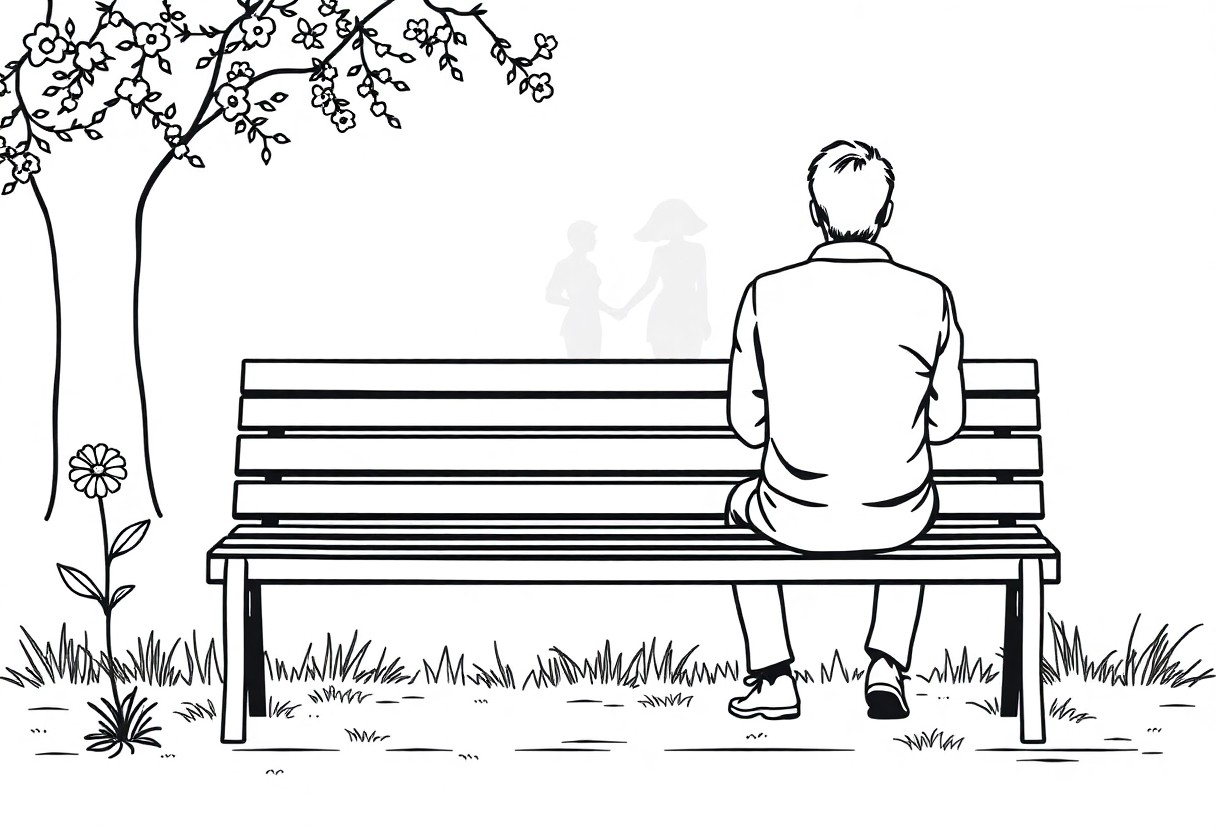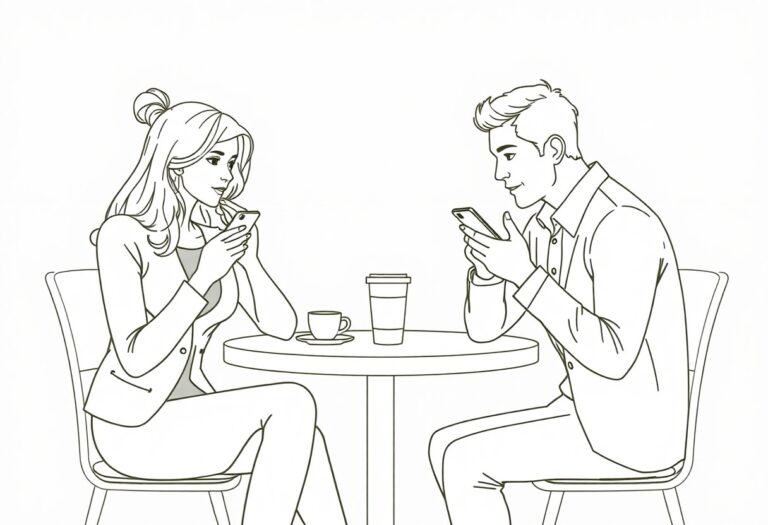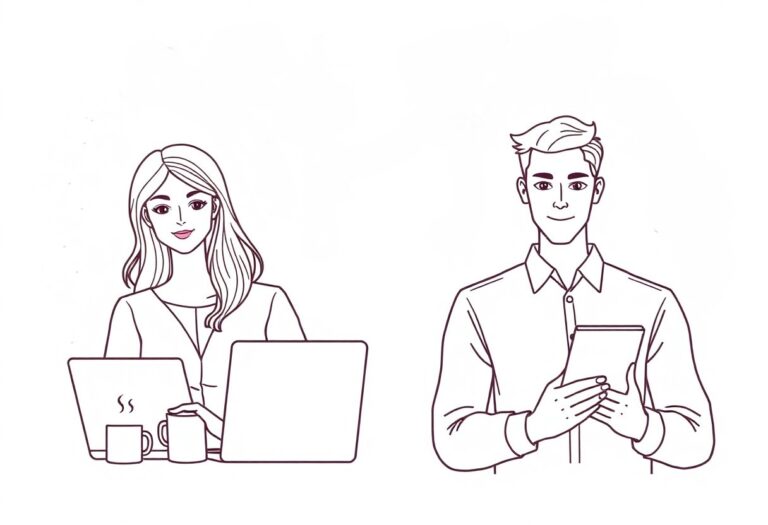How to Handle Rejection and Ghosting After Divorce
Ghosting can be a painful experience, especially following a divorce. When faced with rejection or being ignored by potential partners, it’s important to approach these feelings with self-kindness and resilience. This guide will provide you with practical strategies to help you process your emotions, understand the implications of these experiences, and ultimately move forward successfully. By focusing on your well-being and personal growth, you can transform the negative impact of rejection into a positive journey of self-discovery.
Key Takeaways:
- Accept that rejection and ghosting are common experiences in the dating world, especially after a divorce.
- Prioritise self-care by engaging in activities that boost your confidence and wellbeing.
- Seek support from friends, family, or professionals to help process your feelings and gain perspective.
- Communicate openly about your needs and boundaries when dating, to set clear expectations.
- Stay positive and keep an open mind, as every experience can lead to growth and new opportunities.
Decoding Emotional Reactions to Rejection
Experiencing rejection can foster a whirlwind of emotions that may seem overwhelming at first. Understanding your reactions is important for processing these feelings effectively. You might find yourself oscillating between anger, sadness, and even relief. Acknowledging that these responses are perfectly normal allows you to navigate through the emotional landscape without self-judgement, ultimately helping you to heal and regain your sense of balance.
The Psychological Impact of Rejection
Rejection activates the brain’s pain response, similar to physical discomfort. This can lead to feelings of isolation, anxiety, and depression. Studies indicate that social rejection can diminish your sense of belonging and impact your self-esteem significantly. Understanding the psychological toll of rejection helps you to better contextualise your emotions and approach them with compassion rather than frustration.
Navigating Self-Worth and Identity After Divorce
Your sense of self-worth is often tied to relationships, making navigating personal identity post-divorce challenging. The absence of a partner can lead you to question your value, especially if you’ve faced rejection during your dating attempts. Rebuilding self-worth involves recognising that your identity is independent of your relationship status, and understanding the essence of who you are beyond marriage opens avenues for self-discovery and growth.
Delving into your identity post-divorce allows you to reclaim aspects of yourself that may have been overshadowed during your marriage. Engaging in solo activities, reconnecting with old interests, or exploring new hobbies can provide validation and a renewed sense of self. Nurturing relationships with friends and family can further reinforce your worth, highlighting that love and acceptance exist outside romantic attachments. This reconsolidation of your identity will empower you to face future rejections with resilience and confidence.
Ghosting: The Modern-Day Dilemma
Ghosting has become a common phenomenon in the dating landscape post-divorce, leaving many feeling confused and unworthy. This abrupt cessation of communication without explanation can feel like a crushing blow, triggering feelings of insecurity and loneliness. It not only challenges your self-esteem but also complicates the process of moving on. Understanding the underlying factors contributing to ghosting can help alleviate some of the emotional turmoil that follows.
Understanding the Motivations Behind Ghosting
People may ghost for various reasons, often related to fear or discomfort. The emotional burden of navigating relationships after a divorce can lead individuals to avoid difficult conversations, opting instead to disappear. Factors such as a lack of confidence, fear of commitment, or simply wanting to avoid conflict play pivotal roles in this behaviour. You might find that those who ghost lack the communication skills necessary to express their feelings clearly.
Coping with the Silence: Strategies for Moving Forward
Dealing with the silence after being ghosted can be incredibly challenging. To move forward, focus on self-care, engage in activities that boost your confidence, and surround yourself with supportive friends. Acknowledge your feelings without judgment, allowing yourself to process the emotions associated with being ghosted. Focusing on your personal growth and setting new relationship goals can also provide direction during this disorienting time.
Developing a strong support network is vital for navigating the aftermath of ghosting. Connect with friends who understand your experiences and can offer encouragement. Journaling can serve as an effective outlet for processing your emotions; writing about your feelings allows you to reflect on your experiences constructively. Additionally, engage in activities that foster self-improvement, such as pursuing new hobbies or taking classes, as this not only expands your social circle but also rejuvenates your sense of self-worth. By investing time in yourself, you not only build resilience but also prepare for healthier future relationships.
Rebuilding Confidence Post-Divorce
Post-divorce, rebuilding your confidence can feel like an uphill battle, but it’s entirely achievable. Acknowledging your worth, embracing your individuality, and progressively engaging in new experiences will empower you to reclaim your self-esteem. Surrounding yourself with a supportive network of friends and family can also reinforce your sense of belonging and boost your confidence. Dedicate time to explore your interests and discover what truly makes you happy and fulfilled in this new chapter of your life.
Tools for Self-Reflection and Growth
Using tools like journaling and mindfulness can facilitate self-reflection and growth after divorce. Journaling allows you to articulate your thoughts and emotions, helping clarify your feelings about past relationships and your aspirations for the future. Mindfulness practices, such as meditation or yoga, foster a deeper awareness of your emotional state, promoting healing and personal insight. Engaging in these activities regularly can enhance your understanding of yourself and guide you on the path to rebuild your confidence.
Engaging in Positive Self-Talk and Affirmations
Positive self-talk and affirmations play a significant role in reshaping your mindset post-divorce. By consciously replacing negative thoughts with constructive ones, you can challenge the internal narrative that may be holding you back. Affirmations, such as “I am worthy of love and happiness,” can reinforce a positive self-image and propel you forward. Consistency is key; repeating these affirmations daily, especially during challenging moments, can greatly influence your emotional resilience and support your journey towards confidence.
Incorporating positive self-talk involves recognising when self-doubt creeps in and actively countering those thoughts. You might say to yourself, “I am growing stronger every day” when faced with challenges. Affirmations can be tailored to your specific goals, whether it’s confidence in dating, pursuing new hobbies, or embracing your independence. Research shows that consistently practising positive self-affirmation can lead to improved mood and better coping strategies in stressful situations. So, carve out time for this practice and watch as it transforms your outlook and rebuilding process.
Crafting a New Relationship Blueprint
Rebuilding your relationship framework is a profound step in moving forward. Assess what you genuinely desire in a partner and the qualities that align with your values. You can create a vision statement for your ideal relationship, detailing what you’re looking for and how a healthy partnership should feel. This blueprint will serve as your guide, ensuring you remain focused on your personal growth while actively seeking connections that fit your new reality.
Learning from Past Relationships
Every previous relationship holds valuable lessons. Reflect on what worked and what didn’t, identifying patterns that may have contributed to conflict. Understanding these dynamics will empower you to make more informed decisions moving forward and help you avoid repeating mistakes.
Establishing Boundaries and Setting Realistic Expectations
Clearly defined boundaries are imperative for healthy relationships. Establish what is acceptable to you and communicate these limits to potential partners. Setting realistic expectations ensures you’re not seeking a partner to ‘complete’ you, but rather to complement your already fulfilled life. This balance fosters mutual respect and understanding.
Outlining your boundaries involves being explicit about your needs, whether it’s emotional space, time commitments, or other personal values. For instance, if you require frequent communication but also value personal time, discussing this openly establishes a mutual understanding. Additionally, consider expected behaviours that reflect your values. Prioritising these discussions early on creates a foundation where both partners feel safe and respected, reducing misunderstandings and enhancing relationship dynamics.

Seeking Support and Community
Establishing a supportive network post-divorce can significantly aid in navigating the emotional landscape of rejection and ghosting. Engaging with friends, family, or local groups who understand your journey can foster feelings of connection and uplift your spirit. Sharing your experiences and feelings within a community allows for healing, reduces feelings of isolation, and often provides valuable insights from others who have walked a similar path.
Finding Empowering Social Circles
Surrounding yourself with individuals who uplift and energise you is imperative for healing. Seek out social circles that emphasise positivity, personal growth, and shared interests. Whether through clubs, sports, or social media groups, engaging with people who share your values can provide a refreshing perspective and inspire you to move forward.
The Role of Professional Help in Healing
Professional support can be a transformative resource in your healing journey. Trained therapists and counsellors offer tailored strategies that address your individual experiences. They help you process feelings of rejection and ghosting, equipping you with tools to build resilience. Establishing a routine of therapy can help uncover underlying issues, allowing you to develop coping mechanisms that empower your emotional health. Studies have shown that people who engage in therapy after a relationship loss demonstrate a higher rate of recovery and improved emotional well-being, making it a worthwhile consideration in your path to healing.
Conclusion
To wrap up, handling rejection and ghosting after divorce can be challenging, but it’s imperative to focus on your emotional wellbeing. Accept that these experiences are part of the healing process, and allow yourself to grieve and reflect on what you truly desire in future relationships. Engage in self-care, seek support from friends or professionals, and channel your energy into activities that bring you joy. Ultimately, embracing this chapter of your life will better prepare you for healthier connections ahead, reinforcing your resilience and self-worth.
FAQ
Q: How can I cope with the feelings of rejection after being ghosted post-divorce?
A: Dealing with feelings of rejection can be particularly challenging after a divorce. It’s important to acknowledge your emotions and allow yourself to grieve the loss of potential connections. Engaging in activities you enjoy, seeking support from friends or a therapist, and focusing on self-improvement can help you rebuild your self-esteem and regain a sense of purpose.
Q: What steps can I take to move on from being ghosted after a divorce?
A: Moving on from ghosting involves several key steps. First, give yourself time to process the experience and understand that being ghosted reflects more on the other person than on you. Consider journaling your thoughts to clarify your feelings. Surround yourself with supportive individuals, and remember to explore new activities or hobbies that can divert your focus and help you rediscover joy in your life.
Q: Is it worth reaching out to someone who has ghosted me?
A: While it can be tempting to reach out for closure, it is important to consider the potential outcome. Many individuals prefer to avoid confrontation, and reaching out might not yield the answers you seek. Instead of fixating on their actions, try to concentrate on your healing process. If you feel compelled to reach out, ensure that you are prepared for any response, including no response at all.
Q: How can I build my confidence after experiencing rejection or ghosting?
A: Building confidence after rejection or ghosting involves a multifaceted approach. Start by recognising your worth and practicing self-compassion. Engage in activities that make you feel accomplished, whether it’s exercise, learning a new skill, or volunteering. Surrounding yourself with positive and encouraging people can also significantly boost your confidence and remind you of the valuable aspects you bring to relationships.
Q: What are some healthy coping strategies for dealing with rejection and ghosting after divorce?
A: Healthy coping strategies for handling rejection include practising mindfulness or meditation to help you stay grounded, expressing your emotions through creative outlets like art or writing, and talking with a trusted friend or therapist. Establishing a routine can also provide a sense of stability, and focusing on self-care—whether through physical activity, relaxation techniques, or pampering yourself—can greatly assist in your emotional recovery.






